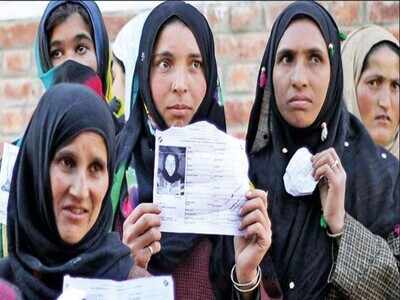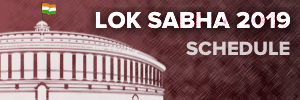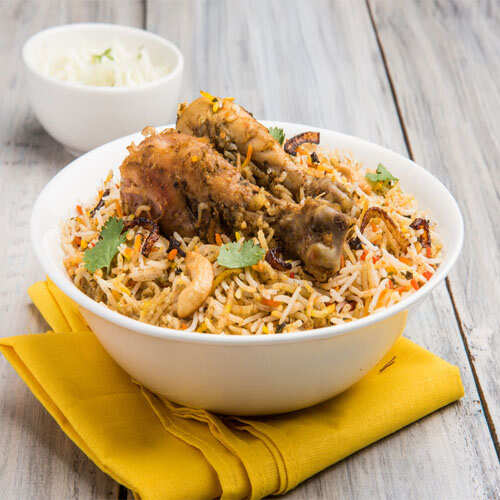
Highlights
NEW DELHI: The Jammu and Kashmir government has requested the Election Commission to hold assembly polls in the state closer to November, reviewing its earlier recommendation to the poll body to time the exercise between June 8 and 24, soon after conclusion of the Lok Sabha elections.
The suggestion to push the state polls to later in the year was made by senior officials of the J&K administration and police who met the Election Commission here on Friday, when they cited the need to deploy paramilitary forces for the Amarnath yatra before it starts on July 1.
TOI has learnt that the EC has asked the state government and the home ministry to submit their views on J&K poll timing in writing.
Delaying polls until November will require extension of President’s rule imposed in J&K on December 19 and approved by Parliament on January 3. Incidentally, while the EC is required to hold state polls within six months of dissolution of the assembly, this limitation does not apply if the situation is not conducive to holding free and fair polls.
Moving the polls till the end of the year is likely to see regional parties PDP and National Conference registering their protests. NC leader Omar Abdullah tweeted on Friday, “Modiji cements his status as the only prime minister since 1996 unable to conduct elections on time in J&K.” Both PDP and NC had demanded simultaneous state polls with Lok Sabha elections which the administration advised the EC against, citing security grounds. The two parties had boycotted the panchayat polls last year.
While a final call on timing of J&K assembly polls will be taken by the EC, the commission depends on the state government’s and Union home ministry’s inputs on security and availability of central forces.
The report of the three special observers — retired IAS officers Noor Mohammad and Vinod Zutshi and ex-DG, CRPF, A S Gill — appointed by the EC to assess the situation in J&K for holding assembly polls has also been submitted. The EC is likely to discuss the report at its meeting on April 30.
Sources indicated that Amarnath yatra would require large-scale deployment of forces by June 15, making them unavailable for poll duty. Besides, as polls in J&K can be held only after the end of Ramzan and Eid on June 4-5, the window for holding what the state government foresees as a seven-phase assembly poll is way too narrow.
After Amarnath yatra ends on August 15, the fruit harvest season becomes due in September-October. The EC traditionally avoids timing polls during the harvest season.
Bakarwals, the nomadic herder community mostly based in Jammu region and also in some parts of Kashmir such as Kupwara, migrate to the upper reaches in summer. They come down only when the climate gets cold in September-October. Since their numbers are significant, the state government is keen to hold the polls at a time when they can cast their vote.
The home ministry and the J&K government had told the EC in February that parliamentary polls in J&K should be held first, immediately followed by five-phase assembly polls between June 8 and 24.
The suggestion to push the state polls to later in the year was made by senior officials of the J&K administration and police who met the Election Commission here on Friday, when they cited the need to deploy paramilitary forces for the Amarnath yatra before it starts on July 1.
Sources told TOI that central forces must be moved at least 15 days in advance. Other factors that the J&K administration brought to the notice of the EC were the fruit harvest season in September-October and migration of the nomadic Bakarwal community to the higher reaches in summer which makes them unavailable for voting until they return to the lower reaches in October.
TOI has learnt that the EC has asked the state government and the home ministry to submit their views on J&K poll timing in writing.
Delaying polls until November will require extension of President’s rule imposed in J&K on December 19 and approved by Parliament on January 3. Incidentally, while the EC is required to hold state polls within six months of dissolution of the assembly, this limitation does not apply if the situation is not conducive to holding free and fair polls.
Moving the polls till the end of the year is likely to see regional parties PDP and National Conference registering their protests. NC leader Omar Abdullah tweeted on Friday, “Modiji cements his status as the only prime minister since 1996 unable to conduct elections on time in J&K.” Both PDP and NC had demanded simultaneous state polls with Lok Sabha elections which the administration advised the EC against, citing security grounds. The two parties had boycotted the panchayat polls last year.
While a final call on timing of J&K assembly polls will be taken by the EC, the commission depends on the state government’s and Union home ministry’s inputs on security and availability of central forces.
The report of the three special observers — retired IAS officers Noor Mohammad and Vinod Zutshi and ex-DG, CRPF, A S Gill — appointed by the EC to assess the situation in J&K for holding assembly polls has also been submitted. The EC is likely to discuss the report at its meeting on April 30.
Sources indicated that Amarnath yatra would require large-scale deployment of forces by June 15, making them unavailable for poll duty. Besides, as polls in J&K can be held only after the end of Ramzan and Eid on June 4-5, the window for holding what the state government foresees as a seven-phase assembly poll is way too narrow.
After Amarnath yatra ends on August 15, the fruit harvest season becomes due in September-October. The EC traditionally avoids timing polls during the harvest season.
Bakarwals, the nomadic herder community mostly based in Jammu region and also in some parts of Kashmir such as Kupwara, migrate to the upper reaches in summer. They come down only when the climate gets cold in September-October. Since their numbers are significant, the state government is keen to hold the polls at a time when they can cast their vote.
The home ministry and the J&K government had told the EC in February that parliamentary polls in J&K should be held first, immediately followed by five-phase assembly polls between June 8 and 24.
Download The Times of India News App for Latest India News.
#ElectionsWithTimes
more from times of india news
Elections 2019

Trending Topics
LATEST VIDEOS
More from TOI
Navbharat Times
Featured Today in Travel
Quick Links
Rajasthan election 2019Andhra Lok Sabha electionGujarat Election 2019Karnataka Election 2019MP Lok Sabha electionMaharashtra election 2019West Bengal Lok SabhaTamil Nadu election 2019UP Election 2019Bihar election 2019UP Election DateAndhra Election DateBihar Election DateAndhra Assembly ElectionLok SabhaMP Election DateMaharashtra Election DateShiv SenaYSRCPTDPWB Election DateJDUCongressBJP newsGujarat Election DateSC ST ActUIDAIIndian ArmyISRO newsSupreme CourtRajasthan Election DateTelangana Election DateTamilrockers 2018Uttarakhand newsSikkim newsOrrisa newsKarnataka Election DateNagaland newsSatta KingManipur newsMeghalaya news
Get the app










